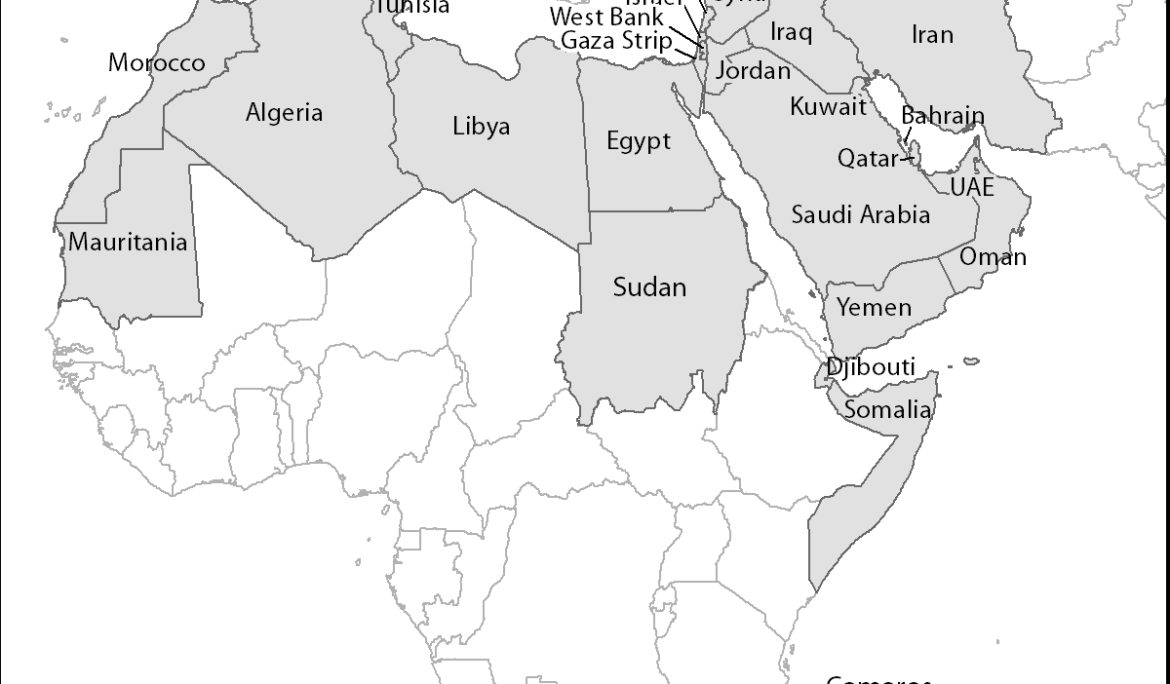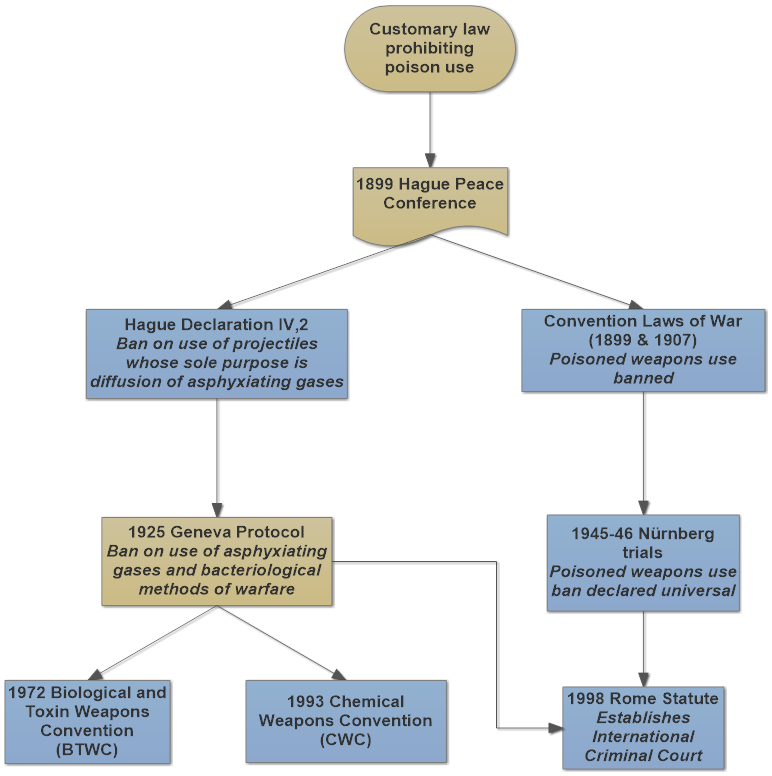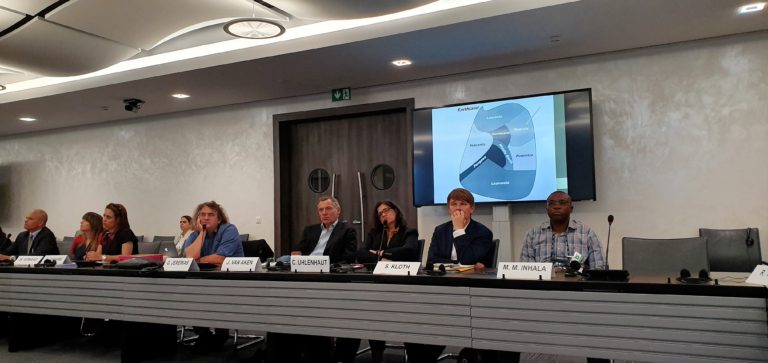Regional security and the Chemical Weapons Convention: Insights for the Middle East (Part 2)
In November 2019, the first annual meeting exploring the possibility of creating a zone exempt of non-conventional weaponry in the Middle East took place. The COVID-19 pandemic forced the postponement of the second meeting in 2020. Conditions permitting, the session is now scheduled for this autumn. Meanwhile, the conference has organised two informal workshops, the second one of which was held virtually on 23-25 February. Entitled ‘Good Practices and Lessons Learned with respect to the implementation of Treaties establishing Nuclear-Weapon-Free Zones’, the workshop’s third session looked at the core obligations governing chemical and biological weapons (CBW). It aimed to glean …
A Middle East Zone Free from Non-conventional Weapons (3)
Part 3: Defining the Middle East, a loaded question In November 2019 a conference at the United Nations in New York (report here) marked a fresh round of diplomatic efforts to eliminate non-conventional arms – essentially nuclear weapons, and to a lesser extent chemical and biological weapons (CBW) – from the military arsenals in the Middle East. As indicated in the second part of this series, participants in the new conference series depart from the definition of the Middle East used by the International Atomic Energy Agency (IAEA). At the UN Institute for Disarmament Research (UNIDIR) seminar ‘The Middle …
A Middle East Zone Free from Non-conventional Weapons (2)
Part 2: Treaties governing chemical and biological weapons In November 2019 a conference at the United Nations in New York marked a fresh round of diplomatic efforts to eliminate non-conventional arms – essentially nuclear weapons, and to a lesser extent chemical and biological weapons (CBW) – from the military arsenals in the Middle East. This article is the second in a series of blog postings exploring the opportunities and challenges to ensure that the regional risks of CBW threats and use – chemical weapons (CW) were and, as I am writing, are part of conflicts in the Middle East …
Third tabletop exercise on emergency assistance in case of biological weapon use – First impressions
The day after the presentation of the report on the Article VII tabletop exercise (TTX) held in Lomé, Togo on 29 and 30 May to the states parties of the Biological and Toxin Weapons Convention (BTWC), the Fondation pour la recherche stratégique (FRS) and the BTWC Implementation Support Unit (ISU) ran another TTX in the United Nations building in Geneva. This time the focus was on a series of anthrax outbreaks that affected mostly herd animals, but also led to multiple human casualties. The scenario was a deliberate attempt to break with the habitual simulations of increasingly dire human pandemics. After all, the BTWC covers …
Below the headlines: CBW matters (22)
(A weekly digest from the internet on chemical and biological warfare issues. Emphasis is on incidents and perspectives, but inclusion of an item does not equal endorsement or agreement with the contents. This issue covers items collected between 10 – 16 July 2017.) CBW disarmament Scientists Review Innovative Technologies for Chemical Security (OPCW, 7 July 2017): The Scientific Advisory Board (SAB) of the Organisation for the Prohibition of Chemical Weapons (OPCW) discussed the potential uses innovative scientific and technological tools in the implementation of the Chemical Weapons Convention (CWC) at a workshop “Innovative Technologies for Chemical Security”, held from 3 …
Below the headlines: CBW matters (19)
(A weekly digest from the internet on chemical and biological warfare issues. Emphasis is on incidents and perspectives, but inclusion of an item does not equal endorsement or agreement with the contents. This issue covers items collected between 19 – 25 June 2017.) CBW disarmament Blue Grass Army Depot one of state’s largest military installations (Kentucky Today, 19 June 2017): Established in 1941, this military installation, covering 14,594 acres, is the state’s third largest. The facility employs over 700 people (60 percent of whom are veterans) and adds $225 million in economic value to Kentucky. Blue Grass Army Depot fulfills …
Below the headlines: CBW matters (15)
(A weekly digest from the internet on chemical and biological warfare issues. Emphasis is on incidents and perspectives, but inclusion of an item does not equal endorsement or agreement with the contents. This issue covers items collected between 22 – 28 May 2017.) CBW disarmament Chemical weapons storage passes treaty inspection (The Register, 21 May 2017): Inspectors from the Organization for the Prohibition of Chemical Weapons visited the Blue Grass Chemical Activity at Blue Grass Army Depot, May 12-17, to perform a systematic stockpile verification inspection, an annual process that has been taking place for 20 years. The inspection team …
Below the headlines: CBW matters (14)
(A weekly digest from the internet on chemical and biological warfare issues. Emphasis is on incidents and perspectives, but inclusion of an item does not equal endorsement or agreement with the contents. This issue covers items collected between 15 – 21 May 2017.) CBW disarmament Letter dated 5 May 2017 from the Secretary-General addressed to the President of the Security Council: Status of the implementation of the plan for the destruction of Libya’s remaining category 2 chemical weapons outside the territory of Libya (S/2017/401). OPCW’s 15th regional meeting of national authorities kicks off in Dubai (Press release, 16 May 2017): …
Below the headlines: CBW matters (10)
(A weekly digest from the internet on chemical and biological warfare issues. Emphasis is on incidents and perspectives, but inclusion of an item does not equal endorsement or agreement with the contents. This issue covers items collected between 17 – 23 April 2017.) Chemical warfare in Syria The chemical strike against Khan Sheikhoun Did Iran just violate the Chemical Weapons Convention? (Majid Rafizadeh, 10 April 2017): Both Iran and Syria are signatories of the international treaty, the Chemical Weapons Convention. International attention has been directed toward the Syrian government for the use of chemical weapons against innocent people. Nevertheless, the …



